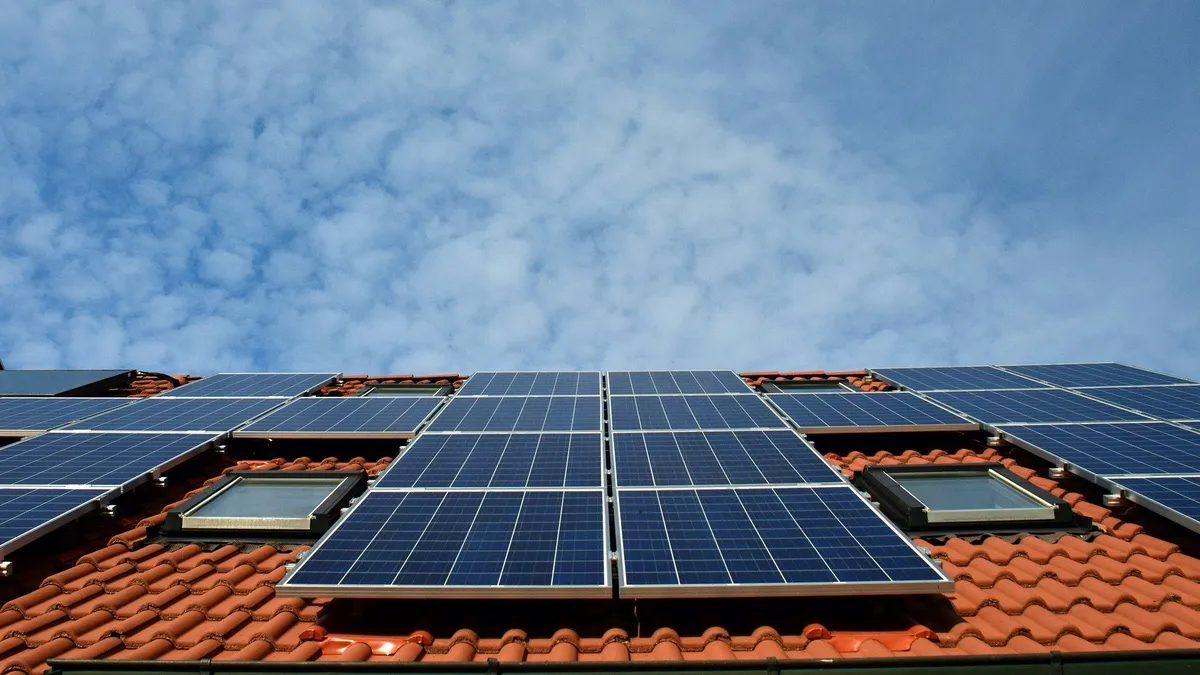Dive Brief:
-
Despite rejecting several requests by PacifiCorp subsidiary Rocky Mountain Power, the Utah Public Service Commission has set the value of credits for excess customer-generated solar energy far below levels suggested by solar industry advocates.
-
In an order that went into effect immediately upon its late Friday publication, the PSC set the summertime value of solar export rates at 5.969 cents/kWh, and the winter value at 5.639 cents/kWh. Rocky Mountain Power had asked the PSC to set the credit rate at 1.5 cents, while the solar industry and environmental advocates had pressed for the preservation of the existing 9.2 cent provisional rate.
-
The PSC also rejected several new fees requested by Rocky Mountain Power, including a metering fee and a new application fee. However, regulators agreed to establish annual reviews of the solar export credit — a provision solar industry advocates say is a likely death knell for most residential sales in the state.
Dive Insight:
The PSC ruling in a rate case intended to end years of conflict between Utah's solar industry and Rocky Mountain Power, the state's largest electric utility, has only served to introduce greater uncertainty about the future of rooftop solar in Utah, solar industry leaders say.
The ruling appeared to try to split the difference between competing proposals for the implementation of a solar export credit rate to replace the state's net metering program, which ended in 2017 via a settlement between Rocky Mountain Power and a coalition of representatives from the state's rooftop solar companies and environmental advocates. The settlement called for hearings before the PSC to determine the value of the solar export credit described in the settlement. In the interim, the settlement set the export credit at a provisional rate of 9.2 cent/kWh.
But for all the give and take present within the order, Ryan Evans, president of the Utah Solar Energy Association, said the ruling failed to address the industry's most pressing need — stability — by authorizing ongoing annual adjustments to the credit's value. The resulting inability to provide customers with reliable estimates of how long it will take them to earn back their investment in solar will reduce rooftop solar to a niche industry in Utah, Evans predicted.
"We didn't end up with a win-win-win, as Governor [Gary] Herbert asked for," Evans said, referencing hopes the retiring Utah governor expressed upon the announcement of the 2017 settlement. "I can see aspects where the utility won't be happy, but if there is no industry, we don't even have an opportunity to even be happy."
While the utility had hoped for more, Rocky Mountain Power spokesperson Spencer Hall described the ruling as a fair result for all of the utility's customers in Utah — though the abrupt nature of the order caught the utility by surprise.
"No party got exactly what they wanted," he said, "but I think the customers got a fair deal."
In the PSC's two-page order, the commission determined that it was appropriate for the export credit rate to take into account values not included in Rocky Mountain Power's rooftop solar value study, including avoided energy costs and transmission and distribution costs. However, the regulators rejected the notion that rate design should take environmental or economic costs into account.
"Our primary responsibility is to set rates based on the utility's cost of service," the order reads. "While we recognize the importance of environmental considerations, carbon policy, economic development, and public health, these matters fall within the regulatory ambit of other government agencies. We will not appropriate those agencies' authority or pretend to their essential expertise by adopting a boundless view of our own in the context of utility rate making."
Grace Olscamp, a spokesperson for environmental advocacy group HEAL Utah, expressed concern that the PSC's solution would establish a precedent of passing the buck on energy policy.
"They didn't even mention what agencies," she said. "Whose jurisdiction is this in, if not yours? And I do think that could set almost a precedent of pointing fingers that could have a domino effect of more and more agencies using that line, and we end up with a situation where no one is dealing with it."
Multiple Utah environmental groups, including Utah Clean Energy, also noted that the PSC's order stipulates that "the value of a customer's monthly excess generation will be netted," but did not provide clarity around the time period within which the netting is to take place.
"I don't believe the commission explicitly states that they are approving instantaneous netting, but there are readings suggesting that," said Hunter Holman, staff attorney for Utah Clean Energy. "I think we need clarification around what we're to do to address that, in terms of metering equipment that needs to be installed."
Holman noted that if new equipment is required, because the commission rejected Rocky Mountain Power's proposed fees for the installation of meters, it leaves open questions about who will be responsible for those additional costs.
Evans said the Utah Solar Energy Association had put in a request with the PSC for more clarity about the questions of netting and metering. But even with that clarity, he said, it likely wouldn't be enough to stop a coming exodus of solar companies from the state.
The settlement, Evans said, was supposed to set the groundwork for a more sustainable future for rooftop solar. "Now," he said, "I'm not sure there is a future."













